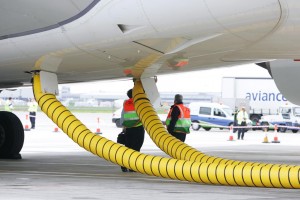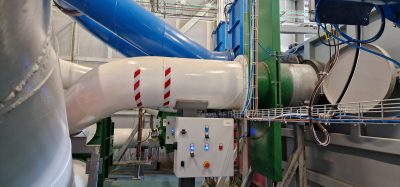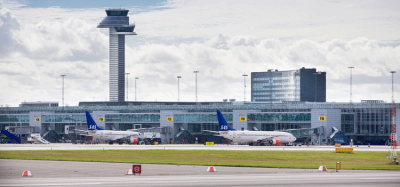UK Airport Operators launch new guidelines to reduce aircraft ground emissions
- Like
- Digg
- Del
- Tumblr
- VKontakte
- Buffer
- Love This
- Odnoklassniki
- Meneame
- Blogger
- Amazon
- Yahoo Mail
- Gmail
- AOL
- Newsvine
- HackerNews
- Evernote
- MySpace
- Mail.ru
- Viadeo
- Line
- Comments
- Yummly
- SMS
- Viber
- Telegram
- Subscribe
- Skype
- Facebook Messenger
- Kakao
- LiveJournal
- Yammer
- Edgar
- Fintel
- Mix
- Instapaper
- Copy Link
Posted: 30 June 2010 | BAA | No comments yet
A major initiative to reduce the carbon emissions of aircraft on the ground at UK airports was launched yesterday…


Pre Conditioned Air being used at Heathrow Airport
A major initiative to reduce the carbon emissions of aircraft on the ground at UK airports was launched yesterday by the Airport Operators Association at their Environmental Conference.
Developed by the UK’s largest airport operator BAA through the Sustainable Aviation coalition, the Aircraft on the Ground CO2 Reduction Programme offers guidelines to airports working with partners to cut aircraft ground movement CO2 emissions and also improve local air quality. The programme seeks to capture best practices across the industry today with potential for even greater efficiency improvements in the future.
Aircraft ground operation CO2 emissions can be significant. Practical action steps for airports, airlines, air navigation service providers and ground handling companies to reduce emissions are clearly set out in the innovative programme.
Amongst the initiatives being outlined are savings through reduced engine taxiing as well as use of fixed electrical ground power and pre-conditioned air, instead of keeping auxiliary power units running on planes when stationary. It is estimated that these two projects at Heathrow are already saving 100,000 tonnes of CO2 per year.
AOA member airports have been invited to sign up to a twelve month period, examining how best to implement the programme’s action steps, and further develop the aviation industry’s understanding of and ability to manage carbon dioxide emissions on the ground. So far 15 airports across the country have joined the programme, representing 70% of all passenger traffic in the UK.
Commenting on the guidelines, AOA Chairman Ed Anderson says: “Airports have an important role to play in reducing the environmental impact of aviation. This new, exciting scheme will complement the existing great work being done by airports across the country and enable all to share best business practice going forward. It’s not a case of competition, as the industry must work together to take action on environmental challenges.”
For the BAA group, Heathrow’s Director of Operations, Colin Wood, says: “The UK aviation industry is leading the world in our collective work to pioneer new procedures and technologies that will improve our environmental performance. As part of this work, the new AOA guidance provides a clear framework for airport operators to address targeted areas of operations by encouraging measurement of current practice, planning to deliver results and a system of review.”
Penny Coates, Managing Director, Regional Airports Division, Manchester Airports Group says: “Manchester Airports Group was pleased to contribute to the development of the guidelines for reducing CO2 emissions from aircraft while they are on the ground. We welcome the introduction of the supporting guidelines, which we will apply at our airports. We believe that the programme provides a clear, evidence based and pragmatic approach to ensure that we continue to bear down on the environmental impacts of all aspects of aircraft operation.”
Paul Kehoe, CEO of Birmingham International Airport says: “Birmingham Airport has long recognised the importance of improving environmental performance. We have an established programme through which we work with NATS and airlines to identify and adopt environmental best practice, including measures to reduce CO2 emissions on the ground. The programme reflects the work already underway at Birmingham Airport and through signing up, we are demonstrating our ongoing commitment to improving environmental performance.”
Alan Davies, Planning and Environment Director Bristol International Airport says: “We expect the Aircraft on the Ground CO2 reduction programme to bring a number of environmental benefits to our operations including savings in CO2 emissions, improvements in local air quality and a reduction in the noise impact on local residents.”
Graeme Mason, Newcastle’s Corporate Affairs Director says: “Even in these difficult economic times it is critical that aviation, including the airports sector, continues improve its environmental performance. Great progress has been made but there is more to do. The Aircraft on the Ground CO2 reduction programme is just one way that airports can and will make a difference, and we are happy to sign up to it”
Laura Duggan, George Best Belfast City Airport’s Environmental Officer says: “GBBCA have signed up to Business in the Community / Arena Network NI Environmental Pledge to help tackle climate change by measuring, reporting and managing our carbon emissions. The Aircraft on the Ground CO2 reduction programme could assist us with measuring and managing our carbon emissions from ground operations to enable us to honour this pledge.”
AOA members will meet three times a year to share experiences and results. They will report on measures taken after a year, to highlight beneficial outcomes, and to set out the next stage of the programme.
Related topics
Related airports
Related organisations
Airport Operators Association (AOA), Manchester Airports Group (MAG)

















